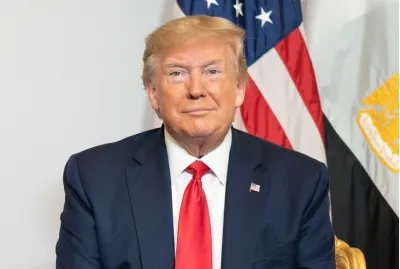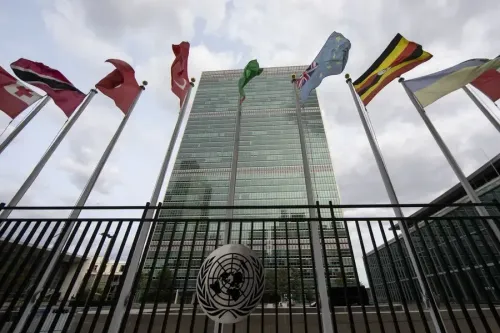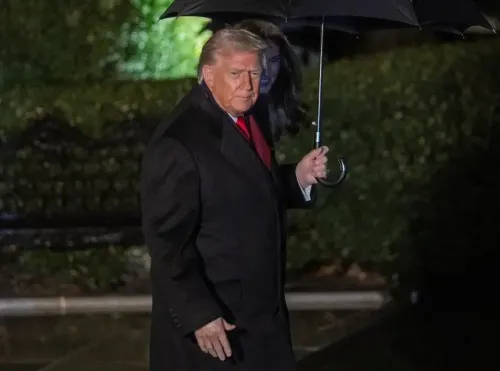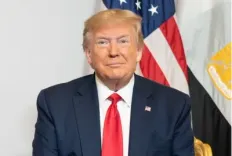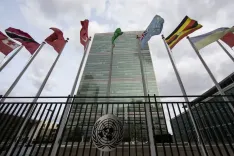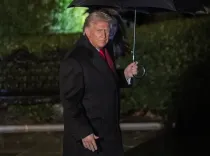South Korea's Industry Minister Urges U.S. Tariff Exemption
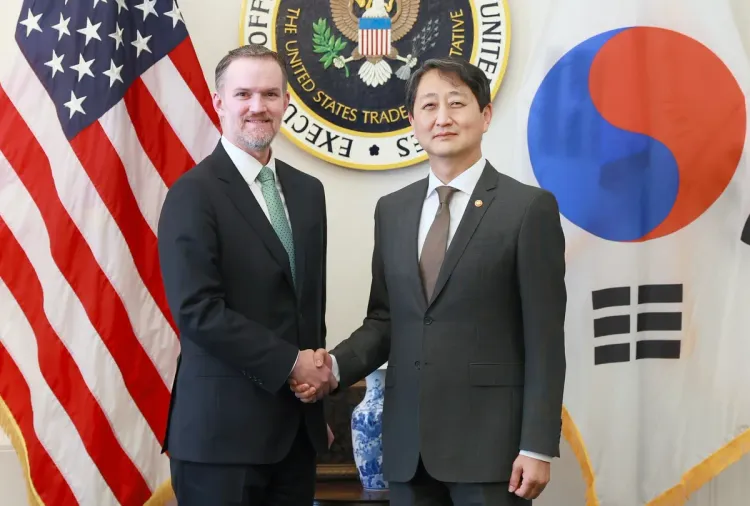
Synopsis
Key Takeaways
- Ahn Duk-geun requests tariff exemption for South Korea.
- Meeting held with prominent U.S. officials.
- Discussions included cooperation in shipbuilding and advanced industries.
- Concerns over potential new tariffs on various imports.
- Ahn emphasizes the importance of bilateral negotiations.
Seoul, March 1 (NationPress) The South Korean Industry Minister Ahn Duk-geun has made a formal request to the U.S. government for South Korea to be excluded from the newly proposed tariff framework, as discussions regarding the enhancement of bilateral cooperation in various sectors took place, as stated by Ahn's office on Saturday.
Ahn's request came during his meeting with U.S. Secretary of Commerce Howard Lutnick, U.S. Trade Representative (USTR) Jamieson Greer, U.S. Secretary of Interior and National Energy Dominance Council Chairman Doug Burgum, along with other officials during his visit to Washington, D.C. this week, according to the Ministry of Trade, Industry and Energy.
This visit was prompted by rising concerns regarding U.S. President Donald Trump's administration plans to impose a 25 percent tariff on all steel and aluminum imports, along with the introduction of reciprocal tariffs, and the potential for new tariffs on cars, chips, and pharmaceuticals, reported the Yonhap news agency.
This marked the first official visit to Washington by a ministerial figure from Seoul since Trump took office last month.
During the meeting with Lutnick, Ahn expressed the concerns of South Korean businesses regarding the U.S. tariff initiative and urged for exemption from duties on Korean enterprises, as noted by the ministry.
The two parties also explored ways to enhance their collaboration in strategic sectors, including shipbuilding and advanced industries.
To further address these matters, Ahn and Lutnick agreed to establish respective working-level consultative bodies to discuss tariff arrangements and shipbuilding partnerships, according to the ministry.
In additional meetings with Greer and Burgum, the South Korean industry minister focused on enhancing bilateral cooperation in energy and trade.
The ministry reported that Ahn also engaged with Sen. Mark Kelly of Arizona, who proposed a bill to revitalize the U.S. shipbuilding and maritime sectors, to share opinions on strengthening cooperation within this domain.
Ahn further met with Kevin D. Roberts, president of the Heritage Foundation; John J. Hamre, president of the Center for Strategic and International Studies; and Adam S. Posen, president of the Peterson Institute for International Economics, to deliberate on Seoul's approach to U.S. trade policies.
“South Korea aims to achieve optimal outcomes through systematic and sincere negotiations with the U.S. regarding new industry, trade, and energy policies, utilizing our experience from successfully responding to the U.S. CHIPS Act and Inflation Reduction Act previously,” Ahn stated.


